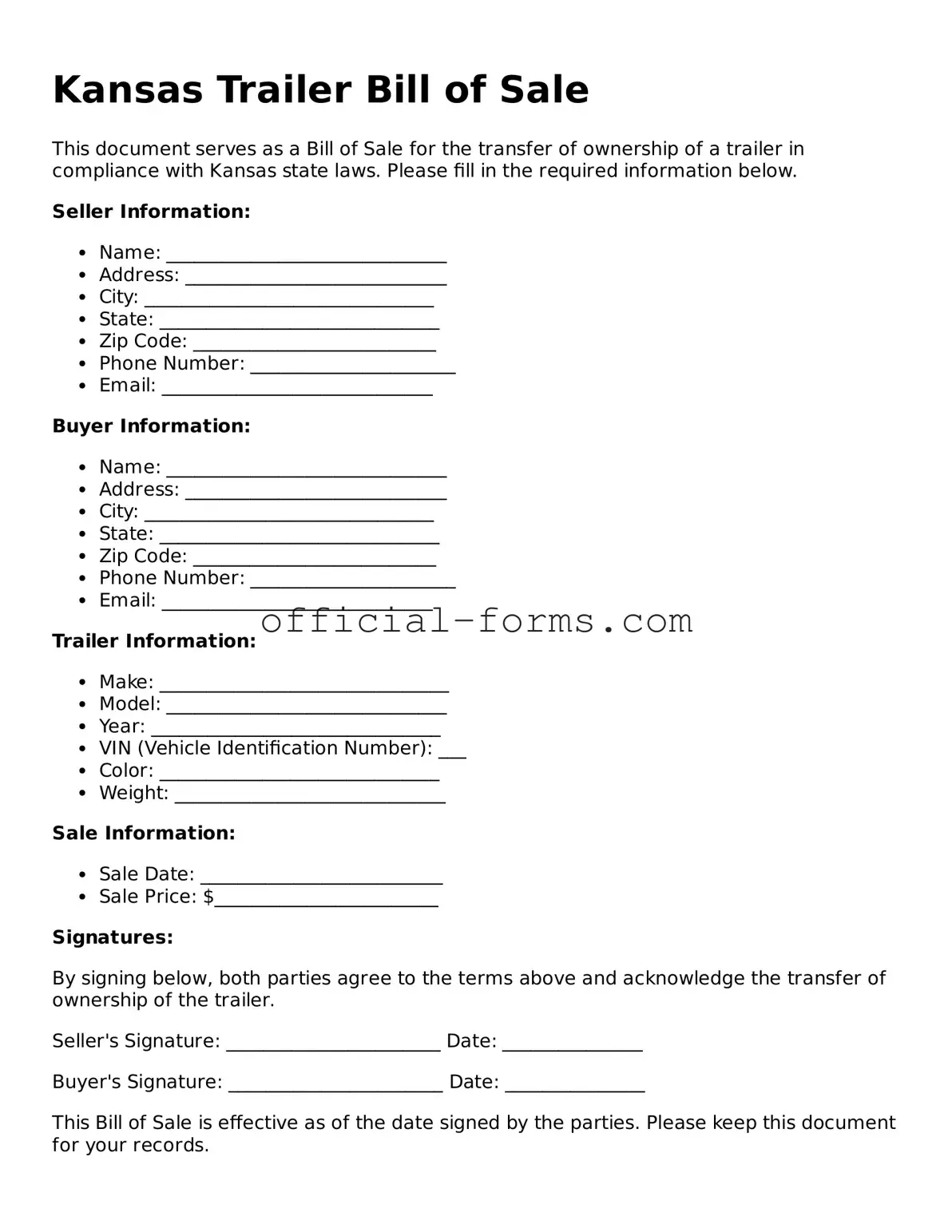Official Kansas Trailer Bill of Sale Document
A Kansas Trailer Bill of Sale form is a legal document that facilitates the transfer of ownership for a trailer between a seller and a buyer. This form serves as proof of the transaction and outlines essential details such as the trailer's description, sale price, and the parties involved. Understanding this form is crucial for ensuring a smooth and lawful transfer of property in Kansas.
Open My Trailer Bill of Sale Now

Official Kansas Trailer Bill of Sale Document
Open My Trailer Bill of Sale Now
Don’t leave your form incomplete
Finish Trailer Bill of Sale online quickly from start to download.
Open My Trailer Bill of Sale Now
or
➤ PDF
